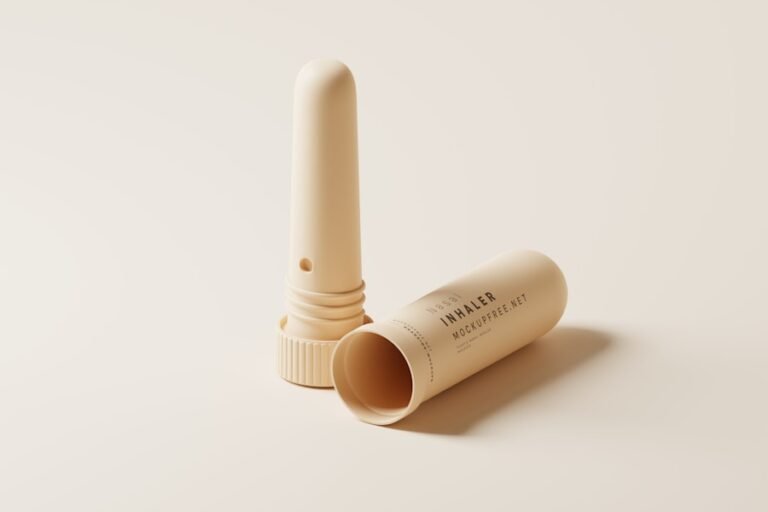Say Goodbye to Swallowing Difficulties with These Natural Remedies
Swallowing difficulties, also known as dysphagia, can have a significant impact on a person’s daily life. The ability to swallow is essential for eating, drinking, and even speaking. When swallowing becomes difficult or painful, it can lead to malnutrition, dehydration, and social isolation. In this article, we will explore the causes and symptoms of swallowing difficulties, the importance of seeking medical advice, and various natural remedies and treatment options that can help improve swallowing function.
Understanding Swallowing Difficulties: Causes and Symptoms
Swallowing difficulties can be caused by a variety of factors. Some common causes include neurological disorders such as stroke or Parkinson’s disease, structural abnormalities in the throat or esophagus, muscle weakness or paralysis, and certain medical conditions like gastroesophageal reflux disease (GERD) or cancer. Symptoms of swallowing difficulties can vary depending on the underlying cause but may include pain or discomfort while swallowing, coughing or choking during meals, regurgitation of food or liquids, weight loss, and a feeling of food getting stuck in the throat.
The Importance of Seeking Medical Advice for Swallowing Difficulties
If you are experiencing swallowing difficulties, it is important to seek medical advice as soon as possible. A healthcare professional can help determine the underlying cause of your symptoms and develop an appropriate treatment plan. They may refer you to a specialist such as a gastroenterologist or otolaryngologist for further evaluation. Ignoring swallowing difficulties can lead to serious complications such as aspiration pneumonia or malnutrition.
The diagnostic process for swallowing difficulties may involve a physical examination, medical history review, and various tests such as a barium swallow study or an endoscopy. These tests can help identify any structural abnormalities or functional issues that may be contributing to your symptoms. Once a diagnosis is made, your healthcare provider can recommend appropriate treatment options.
Natural Remedies for Swallowing Difficulties: An Overview
In addition to medical interventions, there are several natural remedies that can help improve swallowing function. These remedies focus on addressing the underlying causes of swallowing difficulties and promoting overall health and well-being. It is important to note that natural remedies should not replace medical advice or treatment, but can be used as complementary therapies.
Some natural remedies for swallowing difficulties include herbal teas, essential oils, probiotics, dietary changes, acupuncture, relaxation techniques, and physical therapy. These remedies can help reduce inflammation, improve muscle strength and coordination, promote digestion, and reduce stress and anxiety.
The Benefits of Herbal Teas for Swallowing Difficulties
Herbal teas have been used for centuries to promote health and well-being. Some herbal teas can be particularly beneficial for individuals with swallowing difficulties. Chamomile tea, for example, has anti-inflammatory properties and can help soothe the throat. Ginger tea can help improve digestion and reduce nausea, which can be common symptoms associated with swallowing difficulties. Slippery elm tea is another option that can help coat the throat and reduce irritation.
It is important to consult with a healthcare professional or herbalist before incorporating herbal teas into your routine, as some herbs may interact with medications or have contraindications for certain medical conditions.
Using Essential Oils to Ease Swallowing Difficulties
Essential oils are highly concentrated plant extracts that have been used for their therapeutic properties. Some essential oils can be beneficial for individuals with swallowing difficulties. Peppermint oil, for example, has been shown to relax the muscles of the esophagus and improve swallowing function. Lemon oil can help stimulate digestion and reduce inflammation in the throat. Lavender oil can help reduce stress and anxiety, which can contribute to swallowing difficulties.
It is important to dilute essential oils properly before use and consult with a healthcare professional or aromatherapist for guidance on safe and effective use.
The Role of Probiotics in Improving Swallowing Function
Probiotics are beneficial bacteria that can help improve digestion and promote a healthy gut microbiome. Some studies have shown that probiotics may also have a positive impact on swallowing function. Probiotics can help reduce inflammation in the esophagus and improve muscle coordination. They can also help prevent infections and promote overall immune health.
Probiotics can be found in fermented foods such as yogurt, kefir, sauerkraut, and kimchi. They are also available in supplement form. It is important to choose high-quality probiotic supplements and consult with a healthcare professional for guidance on dosage and duration of use.
Dietary Changes to Improve Swallowing Function
Making dietary changes can also help improve swallowing function. It is important to eat a well-balanced diet that includes a variety of nutrient-dense foods. Avoiding foods that are difficult to swallow, such as dry or tough meats, can help reduce the risk of choking or discomfort. Opting for softer foods, such as cooked vegetables, soups, and smoothies, can make swallowing easier.
It is also important to stay hydrated by drinking plenty of fluids throughout the day. Sipping on water or other liquids during meals can help moisten the throat and make swallowing easier. Avoiding alcohol, caffeine, and carbonated beverages can also help reduce irritation in the throat.
The Power of Acupuncture in Treating Swallowing Difficulties
Acupuncture is an ancient Chinese practice that involves inserting thin needles into specific points on the body to promote healing and balance. Acupuncture has been shown to be effective in treating a variety of conditions, including swallowing difficulties. By stimulating specific acupuncture points, acupuncture can help improve muscle coordination, reduce inflammation, and promote overall well-being.
It is important to seek out a qualified and licensed acupuncturist for treatment. They will be able to assess your specific needs and develop a treatment plan tailored to your condition.
Relaxation Techniques to Help with Swallowing Difficulties
Stress and anxiety can exacerbate swallowing difficulties. Incorporating relaxation techniques into your daily routine can help reduce stress and promote a sense of calm. Deep breathing exercises, meditation, yoga, and progressive muscle relaxation are all effective relaxation techniques that can help improve swallowing function.
Finding activities that you enjoy and that help you relax, such as listening to music, taking a bath, or spending time in nature, can also be beneficial. It is important to make self-care a priority and find ways to manage stress in your life.
Physical Therapy for Swallowing Difficulties: Exercises and Techniques
Physical therapy can be an effective treatment option for individuals with swallowing difficulties. A speech-language pathologist or occupational therapist can work with you to develop a personalized exercise program that targets the muscles involved in swallowing. These exercises may include tongue exercises, swallowing exercises, and postural adjustments.
In addition to exercises, physical therapists may also use techniques such as neuromuscular electrical stimulation or thermal stimulation to improve swallowing function. These techniques can help strengthen muscles, improve coordination, and reduce discomfort.
When to Consider Surgery for Swallowing Difficulties: A Guide for Patients
In some cases, surgery may be necessary to treat swallowing difficulties. This is typically reserved for individuals with structural abnormalities or severe cases of dysphagia that do not respond to other treatment options. Surgical options may include dilation of the esophagus, removal of obstructions or tumors, or repair of structural abnormalities.
It is important to discuss the potential risks and benefits of surgery with your healthcare provider. They will be able to assess your specific situation and determine if surgery is the best course of action.
Swallowing difficulties can have a significant impact on a person’s quality of life. It is important to seek medical advice if you are experiencing any symptoms of dysphagia. A healthcare professional can help determine the underlying cause of your symptoms and develop an appropriate treatment plan. In addition to medical interventions, there are several natural remedies and treatment options that can help improve swallowing function. It is important to explore these options under the guidance of a healthcare professional and make self-care a priority. With the right support and treatment, individuals with swallowing difficulties can improve their quality of life and regain their ability to eat, drink, and speak comfortably.







